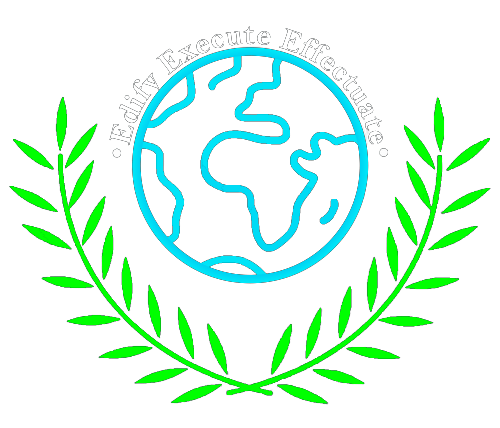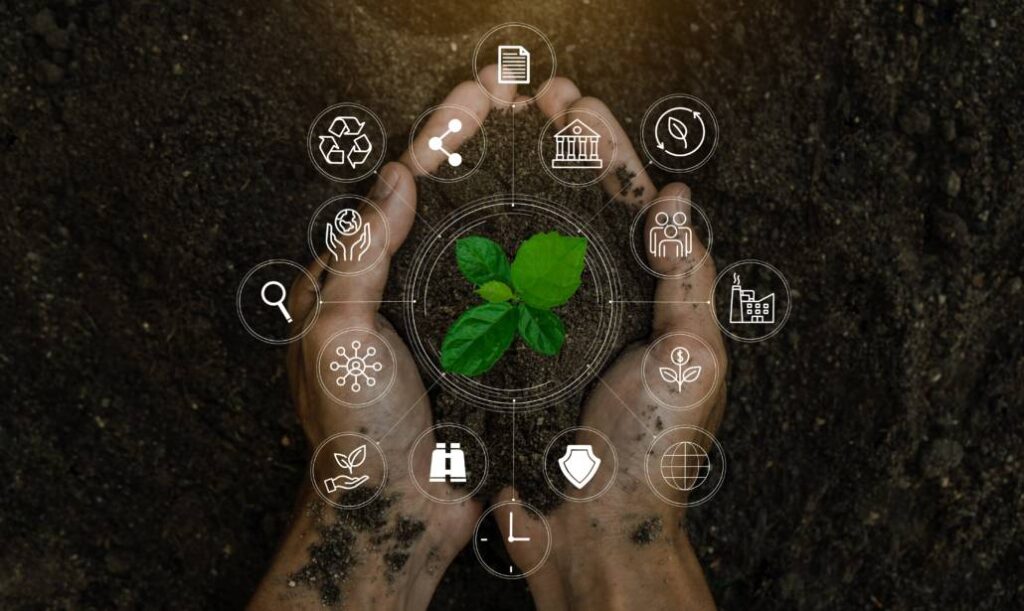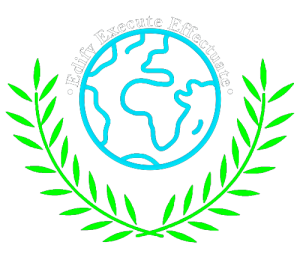The ethics of transitioning to low Carbon, Sustainable Future in the Construction industry.
ABSTRACT
The global demand for sustainable materials is increasing, yet ethical sourcing remains a major challenge. Ethical sourcing ensures that materials are procured responsibly, with minimal harm to people and the environment. This paper explores key principles of ethical sourcing, the challenges faced by industries, and best practices for achieving transparency and accountability in material procurement.
The study highlights sustainable materials, such as certified timber, recycled metals, and bio-based materials, while examining global certifications (e.g., FSC, Fair Trade, LEED) that regulate ethical sourcing. Challenges such as green washing, high costs, and supply chain complexity are also discussed. Finally, the paper provides solutions for improving supply chain transparency, stakeholder collaboration, and regulatory compliance.
Findings suggest that companies that adopt ethical sourcing strategies not only reduce environmental impact but also enhance brand reputation, build stronger partnerships, and attract ESG-conscious investors.
Keywords: Ethical sourcing, sustainable materials, supply chain transparency, ESG compliance, green procurement, circular economy
INTRODUCTION
The construction industry contributes positively to the Gross Domestic Product (GDP) of both developed and developing countries in addition to the industry`s capacity as a reliable employer. The relationship between the environment and construction industry can be said to be symbiotic since the industry relies heavy on the environment for inputs. According to Ugochukwu et al. (2015) construction inputs also determine the success of a project, where a shortfall affect both the quality and time of project completion.
The construction industries heavily depend on raw materials, yet their sourcing methods often involve unethical practices such as illegal deforestation, exploitative labor, and excessive carbon emissions. Ethical sourcing of sustainable materials ensures that materials are obtained responsibly, with fair labour conditions, environmental conservation, and economic sustainability. The construction industry has started over exploitation of natural resources in order to meet the exponential demand.
Developing countries face unique challenges, including weak institutions, rapid population growth, social injustice, political instability, and deficits in housing and infrastructure (Ofori, 1998; du Plessis, 2007). These issues hinder sustainability in the construction sector. Lehmann (2013) highlighted that construction significantly contributes to global greenhouse gas emissions, causing inefficiencies and high energy use. MIT (2013) warned that CO₂ levels, already at 478 ppm, are worsened by other greenhouse gases. Sev (2009) also noted that resource consumption in Sub-Saharan countries is unsustainable, requiring a pragmatic approach to manage limited resources.
In addition, huge amount of Construction and Demolition waste (CD waste) being generated every year across the world is sent to land fill as dumps causing numerous environmental problems. The CD is waste generated during various construction activities such as site clearance, excavation, renovation, demolition, natural and man-made disasters, road construction. It includes different types of materials such as Earth, stone, sand, mixed soil during excavation, contaminated wood, bricks, tiles, concrete with or without reinforcing materials, insulation and roofing materials, salvaged building components, plumbing fixtures, asphalt during road repair and other waste materials. (Gupta et al.,2010)
Unquestionably, the outcome of the Brundtland Report in 1987, the reports of the Rio de Janeiro and Johannesburg meeting as well as other recent efforts such as the Agenda 21 for sustainable construction have all contributed significantly to the global effort in achieving sustainable development. The most widely accepted view of sustainable development is that of the World Conference Environment and Development (1987), which views it as “Development that meets the needs of the present without compromising the ability of future generations to meet their own needs”
With growing consumer awareness and global sustainability commitments (e.g., the Paris Agreement, UN Sustainable Development Goals), companies face increasing pressure to adopt transparent and ethical sourcing practices. However, challenges such as greenwashing, supply chain opacity, and regulatory inconsistencies continue to hinder progress.
This paper explores:
What ethical sourcing means and its importance in sustainability.
Key challenges faced in ethical material procurement.
Best practices in industries transitioning to responsible sourcing.
Policy recommendations and technological solutions to enhance ethical sourcing.
LITERATURE REVIEW
- Sustainable Construction
Sustainable construction has gained significant attention in academia and industry as a response to ecosystem degradation and unequal resource use post-World War II (Dania et al., 2013). Bourdeau (1999) noted that calls for sustainability pushed the construction industry to adopt measures such as efficient energy use, waste reduction, and minimizing environmental impact (Pearce et al., 2012).
This led to global initiatives, including Agenda 21 for Sustainable Construction (CIB, 1999). However, developing countries criticized its lack of inclusivity in the planning process (du Plessis, 2007; Ofori, 2007), prompting the creation of Agenda 21 for Sustainable Construction in Developing Countries (Dania et al., 2013). Despite this, progress remains limited due to political inertia and weak institutional frameworks.
- What is Ethical Sourcing?
Raw materials are important to produce construction materials to meet ecological and socio-economic targets for the Sustainable Development Goals (Mancini & Nuss, 2020). Ethical sourcing covers issues relating to corporate social responsibility, sustainability reporting and ethical sourcing is a responsible supply chain approach that ensures:
- Fair labor conditions (no child labor, forced labor, or wage exploitation).
- Environmental conservation (sustainable forestry, low-carbon extraction, minimal waste).
- Legal and ESG compliance (adhering to industry regulations and ethical trade policies) According to Carter & Rogers (2008), ethical sourcing must balance profitability with corporate responsibility, ensuring that business operations do not exploit workers or harm ecosystems. The concept of ethical sourcing has only just begun to emerge as a reaction to the government`s approach on sustainability implementation in the construction industry.
Ebohon and Rwelamila (2001) maintain that resources production pattern pollutes the rivers and other water bodies in addition to affecting the carbon credit due to deforestation and bush burning. The solution is simply to adopt sustainable practices so that humanity`s continued existence will be guaranteed.
- What are Sustainable Materials?
Sustainable materials that are ideal for low-carbon construction include natural materials such as soil, stone, sand, tree products, etc. These sustainable materials are renewable or recyclable, have a low environmental impact during production and promote long-term resource conservation. Furthermore, they have a low-carbon footprint both when they are sourced and during transportation and processing (Mehta, Gupta, Mirza, & Khokhar, 2022).
- The Importance of Transparency in Ethical Sourcing
Transparency is critical in ethical sourcing because many industries operate complex, global supply chains, making it difficult to trace material origins. Blockchain technology and third-party certifications can help improve accountability (Saberi et al., 2019)
Key global certifications include:
Forest Stewardship Council (FSC): Ensures responsible timber sourcing.
Fair Trade Certification: Verifies fair labor conditions in raw material production.
Leadership in Energy and Environmental Design (LEED): Recognizes sustainable building materials.
Despite these standards, many businesses engage in greenwashing, misleading consumers into believing their materials are ethically sourced (TerraChoice, 2010).
CHALLENGES IN ETHICAL SOURCING
The construction industry faces persistent ethical challenges in procurement, including issues like favoritism, bribery, and hidden agreements, which compromise fairness, inflate costs, and erode trust.
- Impact of Ethical Lapses in Procurement
Unethical procurement practices in construction undermine project integrity, inflate costs, and erode stakeholder trust. These impacts can be categorized into financial, operational, reputation, and legal challenges. - Operational Challenges
Favoritism in vendor selection results in unqualified subcontractors, poor workmanship, and delays. Zhao et al. (2021) highlight that such inefficiencies disrupt workflows, increase rework, and weaken collaboration. - Reputation Damage
Corrupt procurement damages trust among clients and investors, limiting business opportunities. Watts et al. (2021) emphasize that reputation loss can lead to blacklisting and reduced market credibility. - Legal and Regulatory Implications
Ethical violations attract legal scrutiny, leading to fines, contract cancellations, and compliance risks. With global regulatory frameworks emphasizing fair procurement, maintaining transparency is crucial for long-term industry credibility. - Supply Chain Complexity & Lack of Transparency
Many companies source materials from multiple countries, making it difficult to track ethical compliance. It is crucial to identify the source of the materials to ensure that workers’ rights and decent working conditions (personal protection equipment) are being upheld as some unverified suppliers may engage in illegal deforestation, pollution, or labor exploitation(Ntsime, 2024). - High Costs of Ethically Sourced Materials
Extraction of raw materials can exert environmental and socio-economic impacts, and in developing countries, they are associated with disrupting supply chains. This will affect the cost of food and raw building materials. Additionally, if the extraction of the raw materials is done illegally, it can cause land modification due to loss of biodiversity and water or air pollution, which in turn affect local farming activities (Valentina, 2023). Moreover, materials producers are vulnerable during the transition to low-carbon materials, and there is a risk of unemployment for individuals (Plaček, Valentinov, Fojtík, Ochrana, Peřinková, 2020). Sustainable materials often cost 20-30% more due to fair labor wages and certification fees (McKinsey, 2021).Some companies avoid ethical sourcing due to cost concerns, opting for cheaper, unsustainable materials. - Greenwashing & False Sustainability Claims
Some brands falsely market materials as “sustainable” without third-party verification because of the lack of global enforcement allowing companies to mislead consumers without consequences.. However, the adoption of tools such as the Environmental Product Declarations (EPDs) and International Organization for Standardization (ISO ): 14025 are used to combat greenwashing while promoting sustainable materials in the construction industry (Moshood, Rotimi, & Rotimi, 2024).
SOLUTIONS AND BEST PRACTICES
- Leveraging Blockchain & AI for Transparency
Blockchain Technology: Tracks the origin and life cycle of materials.
AI-Powered Audits: Detects sustainability risks in supply chains (Saberi et al., 2019).
- Increasing Supplier Accountability
Companies must work only with certified suppliers (e.g., FSC, Fair Trade, BREEAM).
Conduct regular audits to ensure compliance with ethical labor and environmental standards.
- Adoption of Circular Economy Practices
Businesses should prioritize recycled materials to reduce demand for virgin resources.
Implement waste reduction strategies such as material reuse and closed-loop recycling.
- Government Regulations & Policy Enforcement
Stronger ESG laws should enforce mandatory ethical sourcing disclosures
Financial incentives (tax credits, grants) should encourage businesses to source sustainably.
- Case Study: Ethical Sourcing in Construction (The Bullitt Center, Seattle)
Uses 100% FSC-certified timber and recycled steel.
Operates as a net-zero energy building, demonstrating sustainable sourcing best practices.
CONCLUSION
Ethical sourcing of sustainable materials is a necessary shift for industries seeking to reduce environmental impact and uphold social responsibility. While high costs, supply chain complexity, and greenwashing remain challenges, technological solutions, government regulations, and stakeholder collaboration can create transparent and accountable supply chains. Companies that prioritize ethical sourcing not only enhance brand reputation but also gain a competitive advantage in the era of sustainability-driven markets. Furthermore, adopting emerging technologies like blockchain, AI, and IoT fosters a more efficient and transparent procurement process. While challenges such as resistance to change and balancing confidentiality remain, these can be addressed through stakeholder education, resource allocation, and robust legal frameworks. By embracing innovative solutions and prioritizing ethical standards, the construction industry can improve operational efficiency, enhance stakeholder trust, and set a benchmark for sustainable growth. Adopting responsible material sourcing today is essential for ensuring a sustainable and ethical future.
REFERENCES
- Mancini, L & Nuss, P. 2020. “Responsible Materials Management for a Resource-Efficient and Low-Carbon Society”. MDPI: https://doi.org/10.3390/resources9060068 (Accessed: 22 February 2025)
- Mehta,P; Gupta, P; Mirza, F.B; & Khokhar, K. 2022. “ALTERNATIVE BUILDING MATERIALS FOR LOW-CARBON BUILDINGS IN INDIA”. IARJSET: https:// DOI: 10.17148/IARJSET.2022.9562 (Accessed: 22 February 2025)
- Moshood, T.D; Rotimi, J.O.B; & Rotimi, F.E. 2024. “Combating Greenwashing of Construction Products: A Critical Analysis of Environmental Product Declarations”. PrePrint: http://: https://doi 10.20944/preprints202410.0423.v1 (Accessed: 22 February 2025)
- Ntsime, L. 2024. “Supply Chain Sustainability: Definition, Challenges & Innovations”. Intuendi: http://: https://intuendi.com/resource-center/supply-chain-sustainability-definition-challenges-innovations/ (Accessed: 22 February 2025)
- Plaček, M; Valentinov, V; Fojtík, R; Ochrana, F; & Peřinková, M. 2024. “Bringing in ethics: A multi-stakeholder approach to manage the transition to low-carbon construction”. ISBN 978-3-031-72055-0, Palgrave Macmillan, Cham, pp. 111-123:https://doi.org/10.1007/978-3-031-72055-0_10 (Accessed: 20 February 2025)
- Valentina, C. 2023. “Sustainable sourcing of raw materials for the built environment”. ScienceDirect: https://doi.org/10.1016/j.matpr.2023.07.308 (Accessed: 20 February 2025)
- Gupta, V., Chai, H. K., Lu, Y., & Chaudhary, S. (2020). A state of the art review to enhance the industrial scale waste utilization in sustainable unfired bricks. Construction and building materials, 254, 119220.
- Mancini & Nuss, (2020). “Responsible Materials Management for a Resource-Efficient and Low-Carbon Society” http://” https://www.mdpi.com/2079-9276/9/6/68
- Carter & Rogers (2008), “Sustainable supply chain management: a case study at IKEA” http://” https://www.researchgate.net/publication/321195678_Sustainable_supply_chain_management_a_case_study_at_IKEA
- Saberi et al., (2019). “Blockchain technology and its relationships to sustainable supply chain management” https://www.researchgate.net/publication/328345129_Blockchain_technology_and_its_relationships_to_sustainable_supply_chain_management
- TerraChoice, (2010) “The Sins of Greenwashing. Home and Family Edition” https://www.twosides.info/wp-content/uploads/2018/05/Terrachoice_The_Sins_of_Greenwashing_-_Home_and_Family_Edition_2010.pdf
ARTICLE SUBMITTED BY : Utkarsh Udit Angral , Aswathi Ram P , Venkata Chaitanya Seelam, Karabo Ngele



